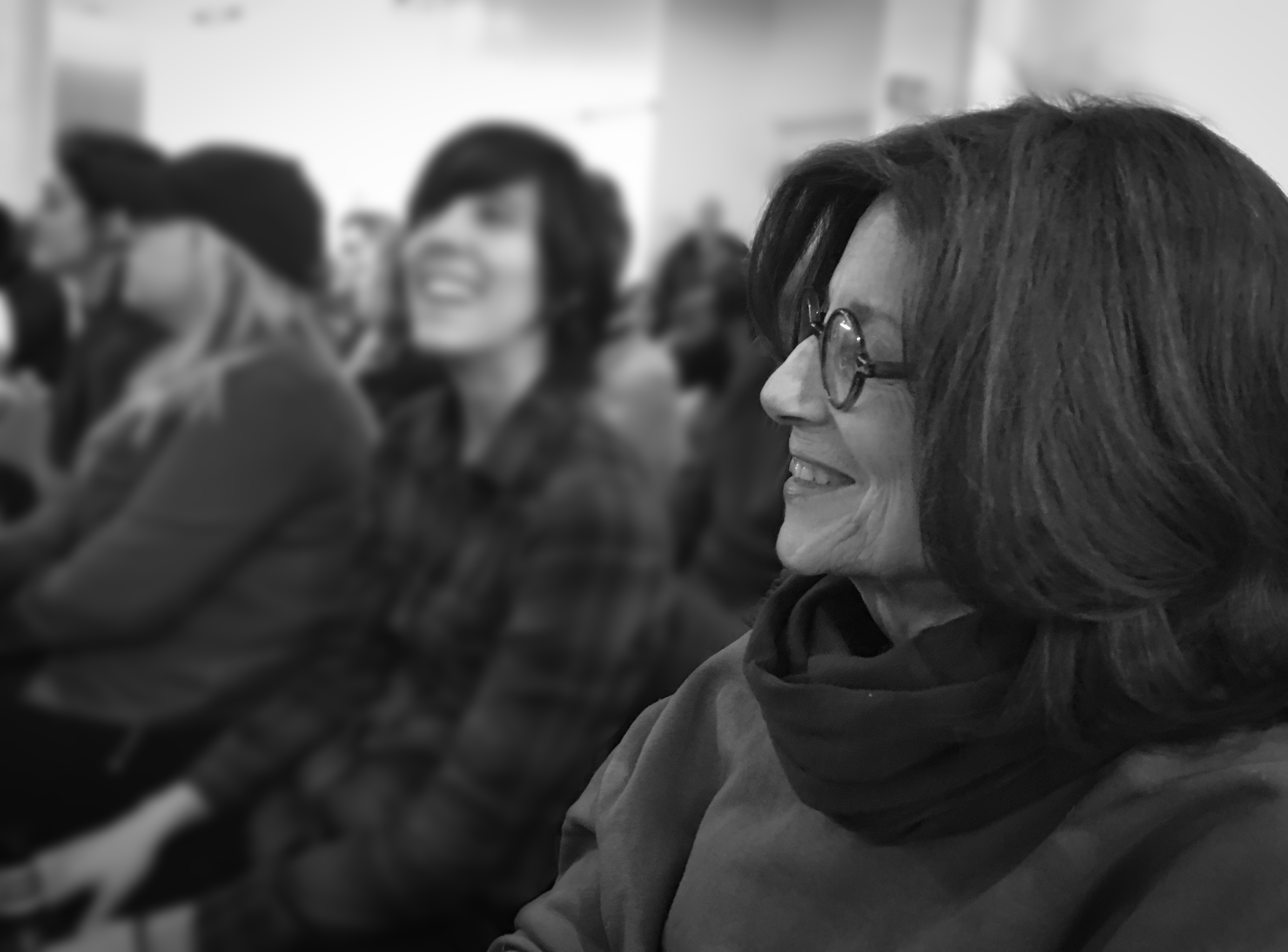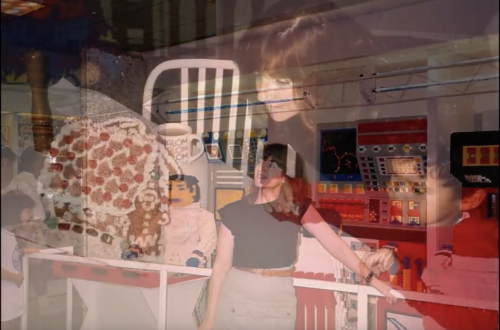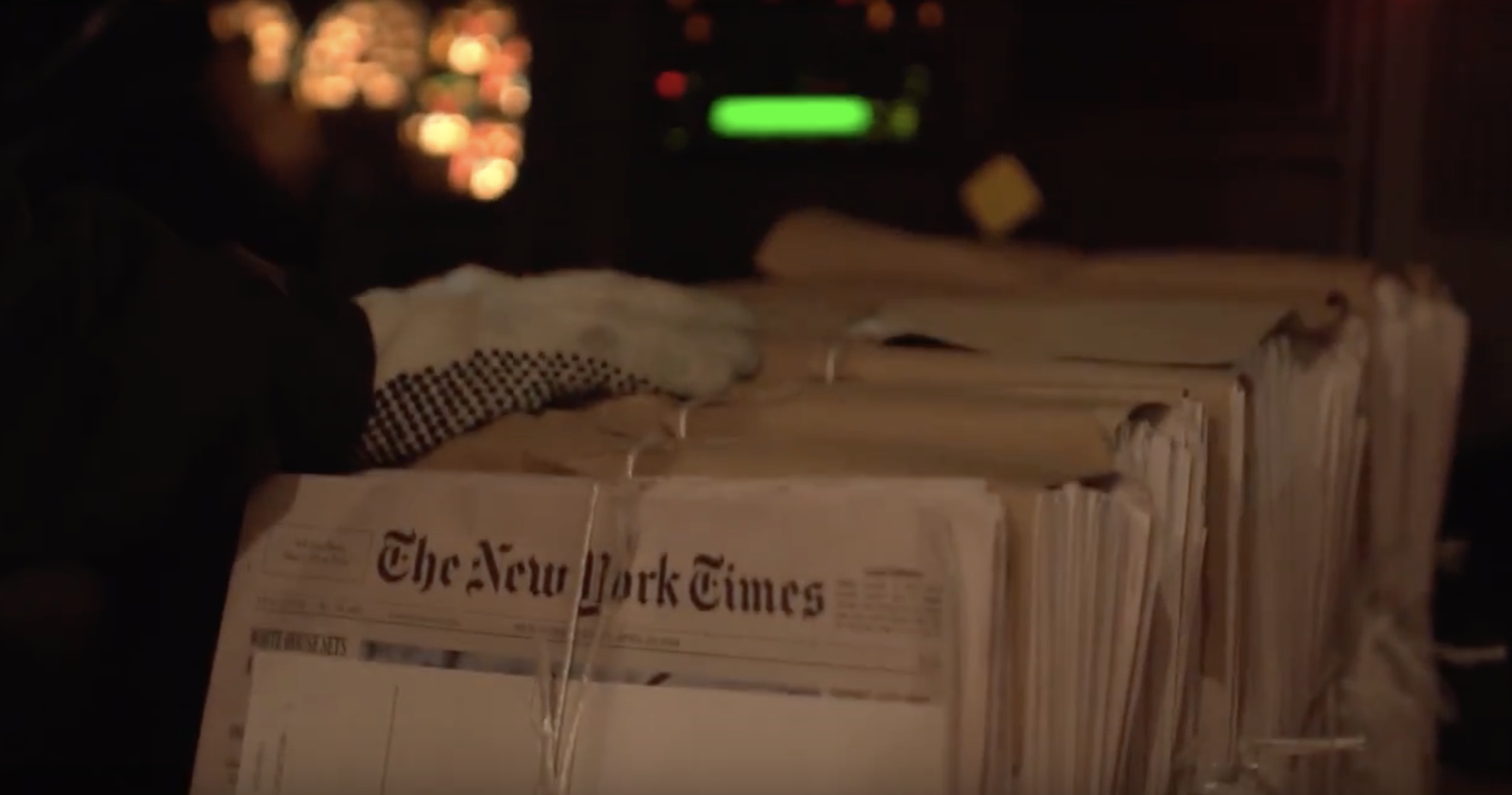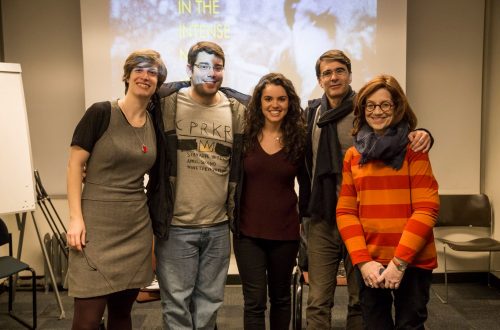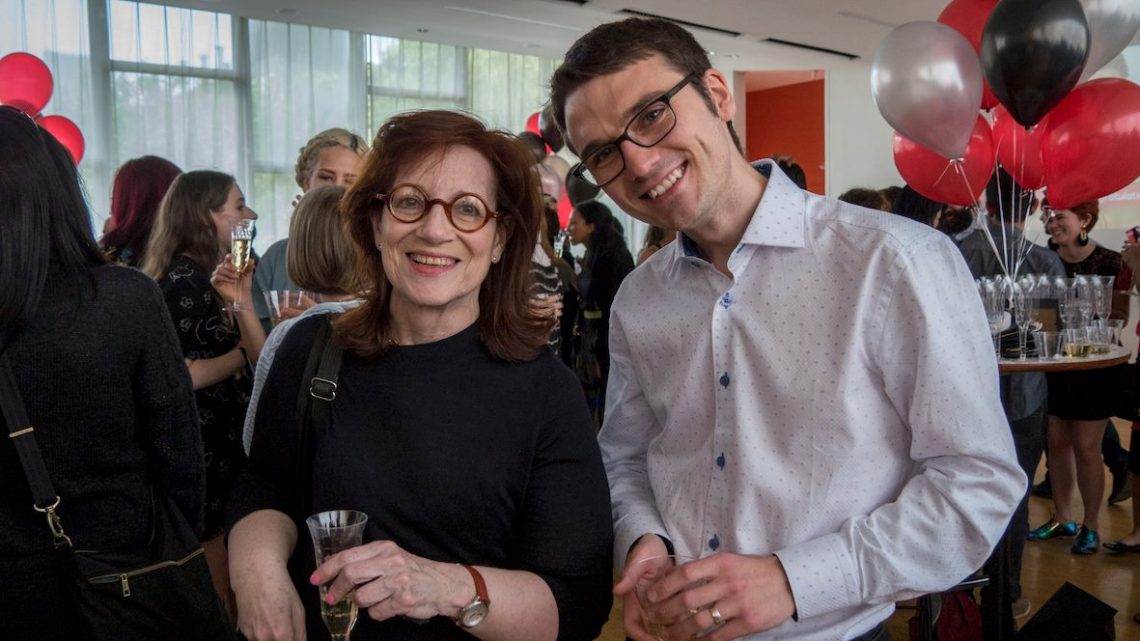
A Constellation of Protagonists
By Toma Peiu
I first encountered Deanna when she visited our introductory Media Studies class, one freezing evening in February 2014, in Kellen Auditorium. She showed us an image of her and a boy – Hanif Kureishi’s son – in front of a newsstand, on a street corner in London. She spoke to us about the importance of editing – words, images, oneself – for a representative civil society and the dangers that came to the public sphere in the age of the breaking news alert.
Later when I took her Directing Documentary class, I was struck by her capacity to find something worthwhile in every incipient idea that I and my classmates would bring to the table. Frankly, most of those ideas were bad – like in any setting of this type: insufficiently elaborated, written in a rush, not fully formed. But she always found something worthwhile to praise or encourage us about, or some direction to point to, that might take us somewhere if we pursued it. She would never simply throw away an idea, even in circumstances where anyone in their right mind would. Instead, she would try to find what your idea really had original, and she’d make you feel that you were the only person in the world who could reach that place.
The better I knew her, the more drafts I’d get to write, or edit. She was spectacular and demanding with words and images – all for good reason: for the duration of our time together, she would give me her full attention, and all the credit in the world. I must have written nine drafts of one particular cover letter.
Deanna was big on Orwell’s The Politics of the English Language and the devaluation of words through overuse, but she also had a few words that she particularly cherished. One of them was the word “protagonist”. She was very keen on documentarians treating those who allowed them access into their lives and minds with fairness and respect; and not think of them as either “characters”, or “subjects”, as they would be labeled in other documentary film classes.
Something strange was also happening when you were talking to her: before you knew it, you’d become the hero of your own life. The unpretentious, but serious way in which she would ponder or discuss events, ideas or projects would often make you reconsider things, or see them in new light. If she was interested in what you cared about, then perhaps there was something worth exploring there.
Soon after we became close friends, I realized that I wasn’t an only protagonist – so to speak. Deanna was surrounded by a constellation of protagonists, including prospective students, colleagues past and present, close friends, writers, family members, hairdressers and bakers. Just like she would instruct her emerging documentarians to do in filmmaking, she would offer everyone the benefit of the spotlight. She appreciated most in good documentary and literature that they were able to capture what she called “the wonder of non-fiction”. In a gesture, an undertone, a wise cut or a turn of phrase, aesthetics could transform our view of the world, rather than simply convey it.
Deanna was a private person – so the biggest treat came once you could revel into her wit, infectious energy and passion for literature, music, teaching and literature. You would also then get access to a new level of sincerity – one which was enjoyable and obliging, at the same time. In October 2016, after a Doc Talk screening of “Cameraperson” and a few weeks before the presidential election, in a casual conversation that we were having in her office overlooking the Empire State Building, I confessed to Deanna that I didn’t know whether I was apt or ready to apply for a Ph.D. program. In a serious tone of voice, she stared me in the eye with that thunder-like force that only she was capable of gathering in a gaze, and said “Because people like us have doubt, idiots run this world. And if we continue to doubt, they will continue to run it unopposed. You have a duty not to stand by.” Deanna convinced me that it was my duty to believe in my project, not for my sake, but for the sake of saving the world from the greed of power hungry impostors.
This is how she also convinced me that I could substitute her AND Jem Cohen in class, when she had to take time off from school; and, also, how she would stand up in everyday contexts when she thought that injustice was about to prevail. She did everything in her power to allow what she called “the normal” to prevail in the face of indifference or malevolence. To the unkind and measly in the world, Deanna offered brilliant, smart, loving resistance.
There are so many things I miss about her, though in a selfish way. Being able to text or call or write at any time of day, and discuss any kind of ontological dilemma; to go out for a “brief” dinner and a glass of wine and end up closing the pub over a conversation on Luc Sante, Sam Shepard, Edward Snowden or her students’ films. Witnessing her infectious passion for the success of her class – and particularly those who struggled in it, and the importance of applying critical thinking to everything from festival acclaimed cinema to bakery etiquette and classroom language have taught me so much about how I can become a better artist and teacher, myself. Sharing a draft with her and have it be shred to pieces, only so that it could then reemerge in better shape. Hearing her voice at the other end of the phone line shine every time she thought that the forces of the good triumphed – when she was enthusiastic about a Doc Talk guest, an everyday interaction at school, or success for alumni from Purchase or The New School in the larger world of documentary.
Like the sensitive writer and artist that she was, Deanna had a preference for open endings and meaningful last words. When I was thinking of my conclusion for tonight, I stumbled upon this paragraph she wrote in a letter addressed to Philip Roth, her literature professor in the late 1980s. I knew that she would yet again come into my help with the right things to say. Because I do not know, yet, how to write to her in the past tense, I will make an exercise in ventriloquism and appropriate the words she addressed to Roth, and apply them to that spirit which made her classroom unique:
Serious is the word that most comes most to mind. For three hours a week, week after week, you offered the opportunity to concentrate seriously on literature. Rarely in media, and rarely too in university, does one get the chance to be serious without strings attached – strings like career, competitive standing or, to use a Kafka term, judgement. But in these successive classes of yours the country of serious stretched out unlimited and borderless. This was a good country to be a citizen of.

